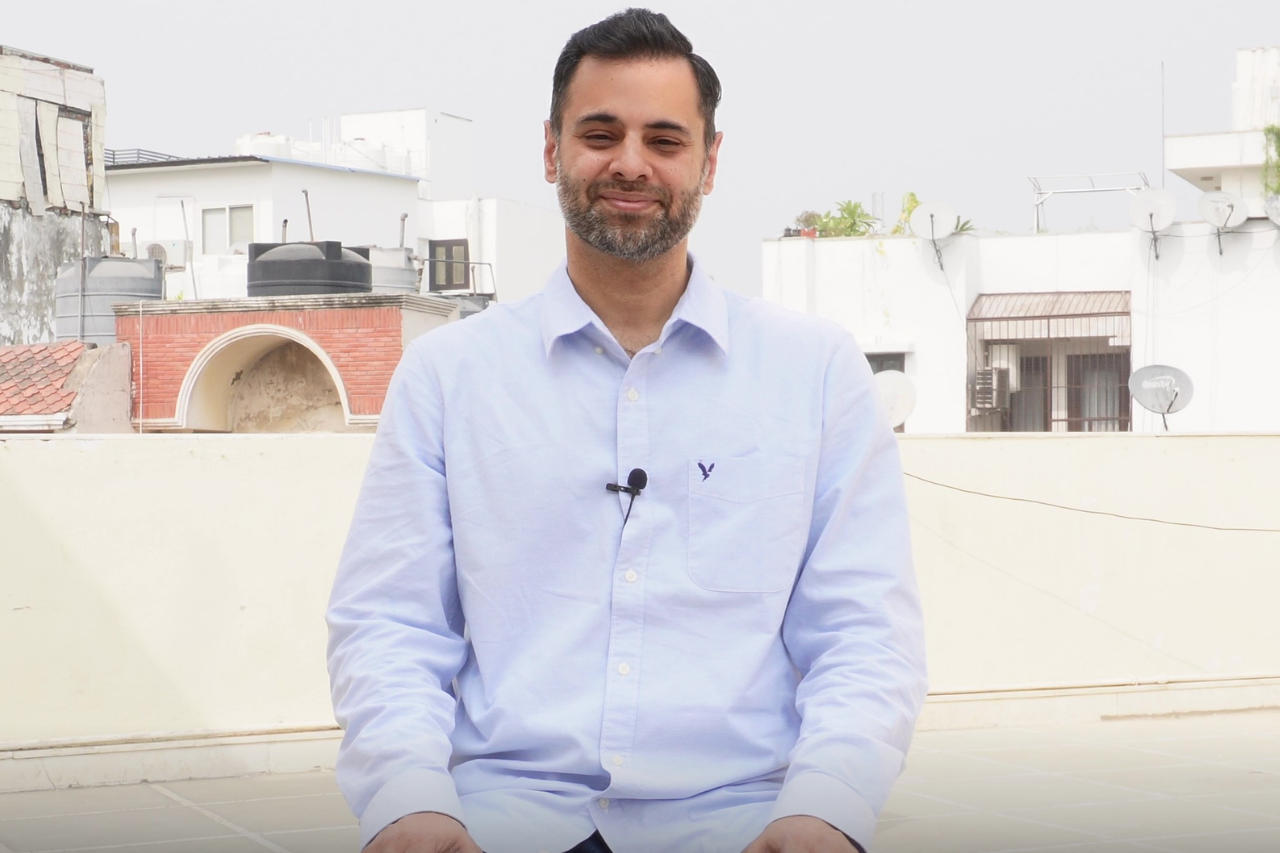Human beings gear toward perfection in everything. Nature is far from perfect. In fact, nature’s perfection lies in its imperfections. We strive and struggle to have perfect lives: stability in relationships, emotions, work, money, and so on. However, the unpredictable nature of life makes it difficult to find stability.
The spiritual masters say that one has to find peace in this unpredictability as there is none outside of it – the samsara and nirvana are one. Peace is the natural outcome of unconditional acceptance of What-Is – the unaltered flow of life. Any attempt to manipulate the natural flow of life brings pain and suffering.
“I should never be judgmental. I should always be financially secure. I should always be psychologically secure. I should be a good person. I should not be greedy. I should never be a slave to my habits. I should never hurt anyone. I should never react.” Each thought is an identification, the reinforcement of which strengthens the sense of personal identification or “me.”
Of course, it does not imply that we behave recklessly, disregarding all social norms and laws. The idea is that there will never be ideal or utopian conditions within life’s flow. Religious leaders, scriptures, philosophies, spiritual gurus, and psychologists promote a sort-of idealism of how we should or should not be.
There will be times when you’ll react. There will be times when you will be greedy; jealous; angry; and so on. There will be times when you’ll not be in control of your impulses, no matter how many hours you’ve spent in meditation or what spiritual teaching you’ve undertaken.
However, with the understanding that there is “no doer” of actions, our reactions and emotional conflicts reduce significantly. But the idea that we can completely control the mind and that we will never have a reaction once the mind is subjugated is flawed. The one that wants to control the mind is the mind.
The need to control reactions is a thought that comes from the ego. Behind such a utopian thought is another thought that relates to the idea of being a “perfect person,” as usually advocated by society and culture. This thought is a future projection of how we should (or should not) be rather than how we are in this given moment. The person implies imperfection. The person says, “I should become so strong and emotionally resilient that nothing should ever affect me.” But who is saying that? It’s the “me” ego.
The concept simply is this: no individual has control over what happens in a given moment. Your ability to control your reactions in the given moment depends on the severity of the situation and your past conditioning, and you have no control over the two. This concept is not a free pass for the individual to behave recklessly because there may be no doer and no receiver of consequences, but the consequences will happen.
Having controlled a reaction once in a while, the mind thinks that it is becoming better and calmer. However, it keeps flip-flopping or doubting itself. “Oh! I should have given them my peace of mind. Am I a coward? Now I am a monster. Now I am Zen. Why did I do this? Why didn’t I do that?” And it goes on and on with this incessant chattering. Jiddu Krishnamurti said that the chattering mind wastes energy. It is an expenditure that accelerates the decay of the body.
This is the classical thinking mind that becomes the bane of our existence. The reason it is painful is that it sees things personally rather than as “happenings.” A Sage has a clear understanding that he (or she) is not in control of what happens in the given moment, but what happens does not become suffering in horizontal time. In contrast, a person without understanding creates a personal story around what happens and keeps suffering the wrath of the thinking mind.
The Limited Mind Cannot Know Unconditional Love
If you are waiting for that perfect attainment where everything changes, you’ll likely be disappointed. The image that you’re expecting to change does not exist as a concrete reality. The person with all the dreams, desires, expectations, and aspirations of material and spiritual fulfillment is a flux. This recognition itself brings relief from the eternal chase of being this or that.
The search for that one practice, method, technique, or prescription that can integrate the individual becomes suffering. All practices are beneficial, and I’m not indicating that you abandon them. But don’t expect practices to bring about a permanent change. Seeing imperfections with aversion creates a negative binding. See them in totality for what they are, giving up the idea of how you should or should not be.
The whole point of spiritual inquiry or vichara is to see the unreality of the person. It is to see how this sense of a central agency is not a continuous experience. Therefore, the inquiry cannot be done through personal effort. It requires stillness or abandoning of effort. It requires seeing the reality beyond the dualistic concepts of good and bad; right and wrong; moral and immoral; virtue and vice; heaven and hell; and so on.
The person remaining trapped in limitations cannot see reality. It evaluates everything from a personal point of view. It never questions the existence of the subject or the observer. Therefore, it creates a separation between the observer and the observed. This separation becomes suffering. The imperfections and flaws come from personal perceptions. They are labels created by the personalized and conditioned mind. They have no relation to the actuality of What-Is.
While the personalized mind seeks liberation, what it doesn’t realize is that its own existence is suffering. The personalized mind cannot “know” its non-existence as an experience. Real learning comes with the insight that is the impersonal stillness or the whole mind. When you’re completely still, you recognize that there is no central agency in charge of anything that happens. The whole mind cannot discriminate, for it does not have a boundary. It is the unconditional love that the limited mind so eagerly desires.
The Original Experience
The limited mind remains caught up in being and not being; in becoming and unbecoming; creating the “me and my sad story.” The mind is a limited object that cannot be free, but there is something that is always free and silently watches everything. It is the being that is our fundamental reality. It is the undistorted and unfiltered perception of What-Is. It is the original experience prior to thought.
Most of our problems arise when we think from a personal viewpoint. As in, “What can my spiritual awakening give me? How can it make me better, get rid of my confusion, or make me an improved version of myself?” This is a trap because the mind starts perceiving things from the filters of preconceived ideas.
There is no originality in what is being seen. The contents of the past are superimposed on the actuality of the present or What-Is. Examine it. Is what you see original or are you looking at the past? A conditioned past that is full of biases, prejudices, and personally shaped thoughts. If you are aware enough, you’ll see that everything gets filtered through an image, which itself keeps changing. Hence, the mind sees nothing new and becomes even more divisive and conflicted. The being is “prior” to thought. It is the whole mind that is capable of total attention. It is the original experience that includes everything.
You cannot be the “being” because YOU ARE IT! In that eternal and unlimited awareness, the finite mind is seen as one object among many. Since it is the enabler of all perception, it cannot be objectified. It is the place of the highest wisdom. Consciousness at rest.
But in the experience of phenomenality, you cannot retain “being” as a continuous experience. Neither can you try to “be” through effort. Effort implies concentration, and hence, the limited mind comes into the picture. The concentrated is limited and peripheral, whereas, the awareness of being is unlimited.
Therefore, the individual has no choice but to accept the unaltered flow of life, which includes pain, suffering, sadness, anxiety, and other emotional turmoil. However, the recognition of “being” brings an amazing sense of freedom to be the way we are rather than conforming to an idealistic image of ourselves. It brings out the highest creativity, sensitivity, and love. It brings the joy of being alive.

